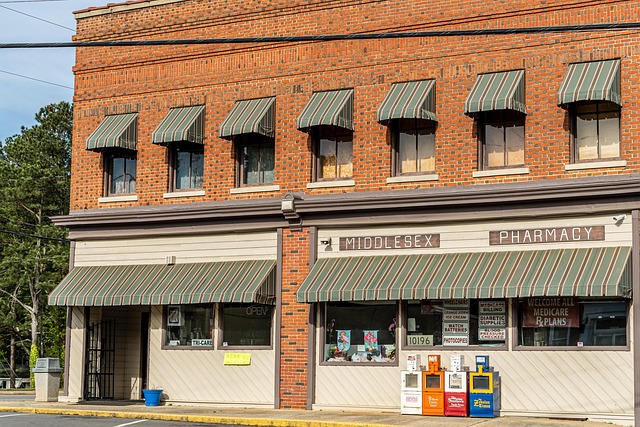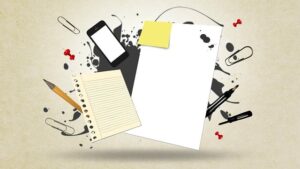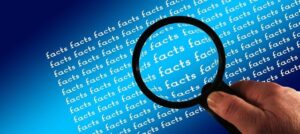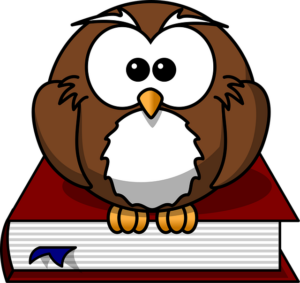Ensuring Precision: Translating Drug Safety Reports for UK Compliance
Translation Services for Drug Safety Reports UK: Ensuring Accurate Communication in a Diverse, Regulated Market.Drug safety reports require flawless accuracy in the UK market due to diverse languages and stringent regulations. High-quality translatio…….

Translation Services for Drug Safety Reports UK: Ensuring Accurate Communication in a Diverse, Regulated Market.
Drug safety reports require flawless accuracy in the UK market due to diverse languages and stringent regulations. High-quality translation services are essential to avoid miscommunication, with potential consequences including delayed approvals and health risks. Professional services must employ expert linguists and advanced technology to navigate complex medical terminology and ensure regulatory compliance. Selection of a reputable provider with human translation, proofreading, and editing guarantees error-free content, vital for maintaining product safety. Future advancements in technology-assisted translation (TAT) and AI will further enhance efficiency and accuracy, meeting complex UK regulatory requirements.
In the intricate world of pharmaceutical regulation, accuracy in translations of drug safety reports is paramount. The UK market, with its stringent requirements, demands flawless communication to ensure patient safety. This article delves into the critical aspects of translating these vital documents, exploring challenges from technical jargon to regulatory compliance. We examine the impact of language barriers and showcase best practices for validation, drawing from case studies of successful implementations in the UK. Additionally, we gaze towards future trends, where technology-assisted translation aims to revolutionize this essential process.
- Understanding the Importance of Accurate Translations in Drug Safety Reports
- Challenges in Translating Technical Documentation for UK Regulatory Compliance
- The Impact of Language Barriers on Drug Safety Communication
- Quality Assurance Measures for Translation Services in the Pharmaceutical Industry
- Selecting Reputable Translation Providers for Critical Safety Reporting
- Best Practices for Validating and Verifying Translated Safety Reports
- Case Studies: Successful Translations in UK Drug Safety Reporting
- Future Trends in Technology-Assisted Translation for Regulatory Compliance
Understanding the Importance of Accurate Translations in Drug Safety Reports

In the realm of drug safety reports, accuracy holds paramount importance. These documents play a crucial role in ensuring the safety and efficacy of pharmaceuticals, guiding regulatory decisions that impact patient lives. When it comes to the UK market, where diverse languages are spoken and strict regulations enforced, accurate translations are not just desirable—they are essential. Translation services for Drug Safety Reports UK must be reliable to prevent miscommunication, misinterpretation, or worse, regulatory failures.
Any errors in translation can lead to serious consequences, including delayed drug approvals, labeling discrepancies, and even potential health risks. Patients and healthcare professionals rely on these reports for critical information about medication safety. Therefore, when translating drug safety reports, it’s not just about word-for-word accuracy but also cultural nuances, technical terminology, and regulatory compliance. Only then can we ensure that the message—the safety of drugs—is conveyed with flawless clarity.
Challenges in Translating Technical Documentation for UK Regulatory Compliance

Technical documentation, especially in regulated industries like pharmaceuticals, demands precision and clarity. When it comes to translating Drug Safety Reports (DSRs) for the UK market, there are unique challenges due to stringent regulatory requirements. The accuracy of translations is paramount as any error could have severe consequences.
One of the main hurdles is navigating complex terminology and ensuring consistent use across multiple documents. Medical and pharmacological jargon often has precise, specialized meanings, and a slight misinterpretation can lead to misunderstandings. Professional translation services for DSRs in the UK must employ linguists with expertise in both the source and target languages, coupled with a deep understanding of pharmaceutical regulations. They should also utilize terminological databases and glossaries to maintain consistency throughout the entire report, from adverse event descriptions to study protocols.
The Impact of Language Barriers on Drug Safety Communication

Language barriers can significantly impact drug safety communication, posing potential risks to public health in the UK. When critical information regarding medication side effects, interactions, and correct usage is conveyed inadequately or not at all due to language differences, it can lead to misunderstandings and hazardous outcomes for patients. This is especially concerning in a diverse nation like the UK where various languages are spoken, and healthcare resources must be accessible to all.
Translation services for Drug Safety Reports UK play a pivotal role in overcoming these barriers. Professional translation ensures that safety information is accurately conveyed to patients from diverse linguistic backgrounds, promoting better medication adherence and safer practices. Quality translations also facilitate effective communication between healthcare professionals, researchers, and regulatory bodies, ensuring consistent and up-to-date drug safety knowledge across the nation.
Quality Assurance Measures for Translation Services in the Pharmaceutical Industry

In the pharmaceutical industry, ensuring the accuracy and quality of translations is paramount, especially when it comes to safety reports in the UK. Translation services for Drug Safety Reports UK must adhere to stringent Quality Assurance (QA) measures to maintain integrity and compliance. These processes involve multiple checks and balances to guarantee that each translated document accurately reflects the original content.
QA measures include thorough linguistic review by expert translators who specialize in medical terminology, followed by proofreading to catch any subtle errors. Additionally, consistency checks are performed across all translations to ensure alignment with regulatory requirements and industry standards. Advanced technology, such as machine translation with human post-editing, also plays a significant role in enhancing accuracy and efficiency while maintaining the highest level of quality.
Selecting Reputable Translation Providers for Critical Safety Reporting

When it comes to critical safety reporting, such as those in the pharmaceutical industry, selecting a reputable translation service is paramount for accuracy and reliability. Drug Safety Reports UK require precise and technically sound translations to convey essential information about drug safety data accurately. This is where professional translation providers specializing in medical and scientific documents come into play.
Choosing a well-established company with experienced linguists who have a deep understanding of regulatory requirements ensures that your safety reports are handled with the utmost care. Look for providers who offer human translation, proofreading, and editing services to guarantee error-free content. With their expertise, they can navigate complex terminology and ensure the translated report adheres to UK regulations, thus maintaining the integrity of your drug safety data.
Best Practices for Validating and Verifying Translated Safety Reports

When it comes to translation services for Drug Safety Reports UK, ensuring accuracy is paramount to avoid regulatory issues and maintain product safety. Best practices for validating and verifying translated safety reports involve a multi-step process. Firstly, independent review by a subject matter expert (SME) who understands both the source language and the regulations in the target market is crucial. This expert should check for not only grammatical correctness but also the accuracy of scientific and technical terms, ensuring they comply with UK standards.
Additionally, utilizing specialized software tools designed to flag potential errors or inconsistencies can enhance the verification process. Cross-referencing against original source documents and seeking feedback from industry peers or regulatory bodies further reinforces the translation’s quality. Remember that consistent, rigorous quality assurance (QA) procedures are essential to guarantee the reliability of translated safety reports, thereby facilitating smoother compliance with UK regulations.
Case Studies: Successful Translations in UK Drug Safety Reporting

In the realm of drug safety reporting, accurate translations are paramount to ensure effective communication and compliance with UK regulations. Case studies illustrate the success of translation services specifically tailored for Drug Safety Reports in the UK. These services have proven their mettle by seamlessly translating complex medical terminology while adhering strictly to industry standards and legal requirements.
By leveraging advanced technologies and a team of expert linguists, these translation services offer unparalleled accuracy and consistency. They not only bridge the language gap but also navigate cultural nuances, ensuring that safety reports are clear, concise, and easily comprehensible for healthcare professionals across diverse linguistic backgrounds. This level of precision is crucial in preventing errors and misinterpretations that could have severe implications in drug safety monitoring.
Future Trends in Technology-Assisted Translation for Regulatory Compliance

The future of translation services for Drug Safety Reports in the UK looks promising with advancements in technology-assisted translation (TAT). As regulatory requirements become increasingly complex, TAT offers a more efficient and accurate approach to ensuring compliance. Machine learning algorithms can now handle intricate linguistic nuances, cultural references, and specialized terminology specific to the pharmaceutical industry. This allows translators to deliver high-quality translations faster while maintaining consistency across global markets.
With the rise of artificial intelligence (AI), we can expect even more sophisticated translation tools that adapt to various regulatory frameworks. These technologies will enable real-time updates, making it easier for companies to stay ahead of changing guidelines and requirements. This trend not only improves accuracy but also streamlines the process, allowing businesses to focus on their core competencies while ensuring regulatory safety reports are translated accurately and promptly for the UK market.
Accurate translations of drug safety reports are paramount for ensuring effective communication and regulatory compliance within the UK pharmaceutical industry. As demonstrated through best practices, case studies, and future trends in technology-assisted translation, meticulous quality assurance measures and reputable service providers are essential to overcoming challenges posed by technical documentation. By adopting these strategies, the industry can maintain high standards, foster clear safety communication, and navigate regulatory requirements with confidence, ultimately safeguarding public health through precise and reliable translations of drug safety reports in the UK.






